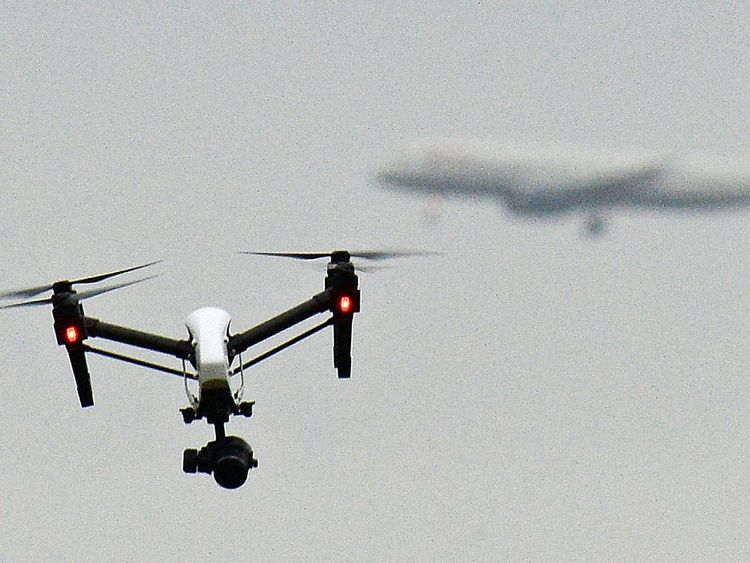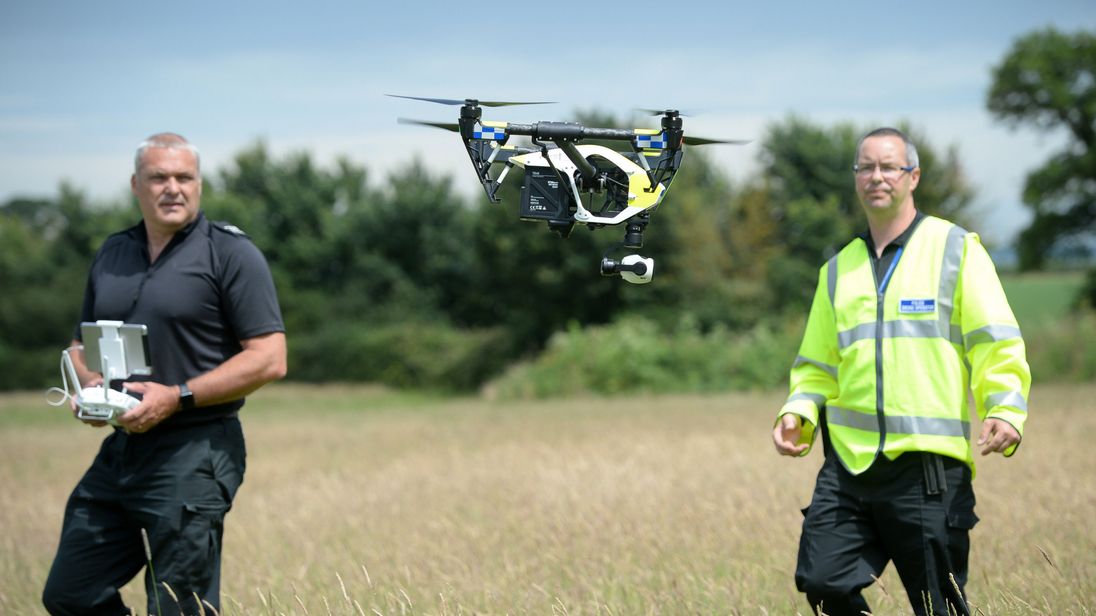Drone technology is constantly improving, making the machines better, cheaper and more desirable.
This Christmas more drones than ever are expected to be sold to thousands of people who will fly them without any training at all.
But that may be about to change, with the Government announcing the introduction of a draft drone bill, to be published next spring.
The proposed bill will mean drone pilots will have register and sit safety awareness tests as part of plans to regulate their use.
The new measures will also give police the right to ground drones or to seize drone parts to prove the device has been used to commit a crime.
National Police Chiefs' Council lead for criminal misuse of drones, Assistant Chief Constable Serena Kennedy, said: "Police forces are aware of the ever increasing use of drones by members of the public and we are working with all relevant partners to understand the threats that this new technology can pose when used irresponsibly or illegally.
"Do not take this lightly – if you use a drone to invade people's privacy or engage in disruptive behaviour, you could face serious criminal charges."

Banning drones from flying near airports or above 400ft could also form part of the new regulations.
Currently, drones weighing more than 7kg can't be flown above 400ft, and they must always be in the pilot's line of sight.
Most of the drone incidents reported by pilots are made at flight level – that's around 5,000 ft. But some have even been reported at up to 35,000ft.

The danger can be seen in the increasing numbers of reports from pilots who say they have had a near-miss with a drone.
In 2014 there were only six incidents but in 2015 that rose to 29. Last year there were 71 reports and in the first eight months of this year, there have already been 81.
However, the Government does not want to ban drones completely.
On Monday a scheme will be launched to support the research and development of drone technology for uses in industry, logistics and healthcare.

Aviation minister Baroness Sugg said: "Drones have great potential and we want to do everything possible to harness the benefits of this technology as it develops.
"But if we are to realise the full potential of this incredibly exciting technology, we have to take steps to stop illegal use of these devices and address safety and privacy concerns.
"These new laws strike a balance, to allow the vast majority of drone users to continue flying safely and responsibly, while also paving the way for drone technology to revolutionise businesses and public services."
The draft drone bill will be published for consultation and introduce secondary legislation amendments in spring 2018.
Drone technology is constantly improving, making the machines better, cheaper and more desirable.
This Christmas more drones than ever are expected to be sold to thousands of people who will fly them without any training at all.
But that may be about to change, with the Government announcing the introduction of a draft drone bill, to be published next spring.
The proposed bill will mean drone pilots will have register and sit safety awareness tests as part of plans to regulate their use.
The new measures will also give police the right to ground drones or to seize drone parts to prove the device has been used to commit a crime.
National Police Chiefs' Council lead for criminal misuse of drones, Assistant Chief Constable Serena Kennedy, said: "Police forces are aware of the ever increasing use of drones by members of the public and we are working with all relevant partners to understand the threats that this new technology can pose when used irresponsibly or illegally.
"Do not take this lightly – if you use a drone to invade people's privacy or engage in disruptive behaviour, you could face serious criminal charges."

Banning drones from flying near airports or above 400ft could also form part of the new regulations.
Currently, drones weighing more than 7kg can't be flown above 400ft, and they must always be in the pilot's line of sight.
Most of the drone incidents reported by pilots are made at flight level – that's around 5,000 ft. But some have even been reported at up to 35,000ft.

The danger can be seen in the increasing numbers of reports from pilots who say they have had a near-miss with a drone.
In 2014 there were only six incidents but in 2015 that rose to 29. Last year there were 71 reports and in the first eight months of this year, there have already been 81.
However, the Government does not want to ban drones completely.
On Monday a scheme will be launched to support the research and development of drone technology for uses in industry, logistics and healthcare.

Aviation minister Baroness Sugg said: "Drones have great potential and we want to do everything possible to harness the benefits of this technology as it develops.
"But if we are to realise the full potential of this incredibly exciting technology, we have to take steps to stop illegal use of these devices and address safety and privacy concerns.
"These new laws strike a balance, to allow the vast majority of drone users to continue flying safely and responsibly, while also paving the way for drone technology to revolutionise businesses and public services."
The draft drone bill will be published for consultation and introduce secondary legislation amendments in spring 2018.











